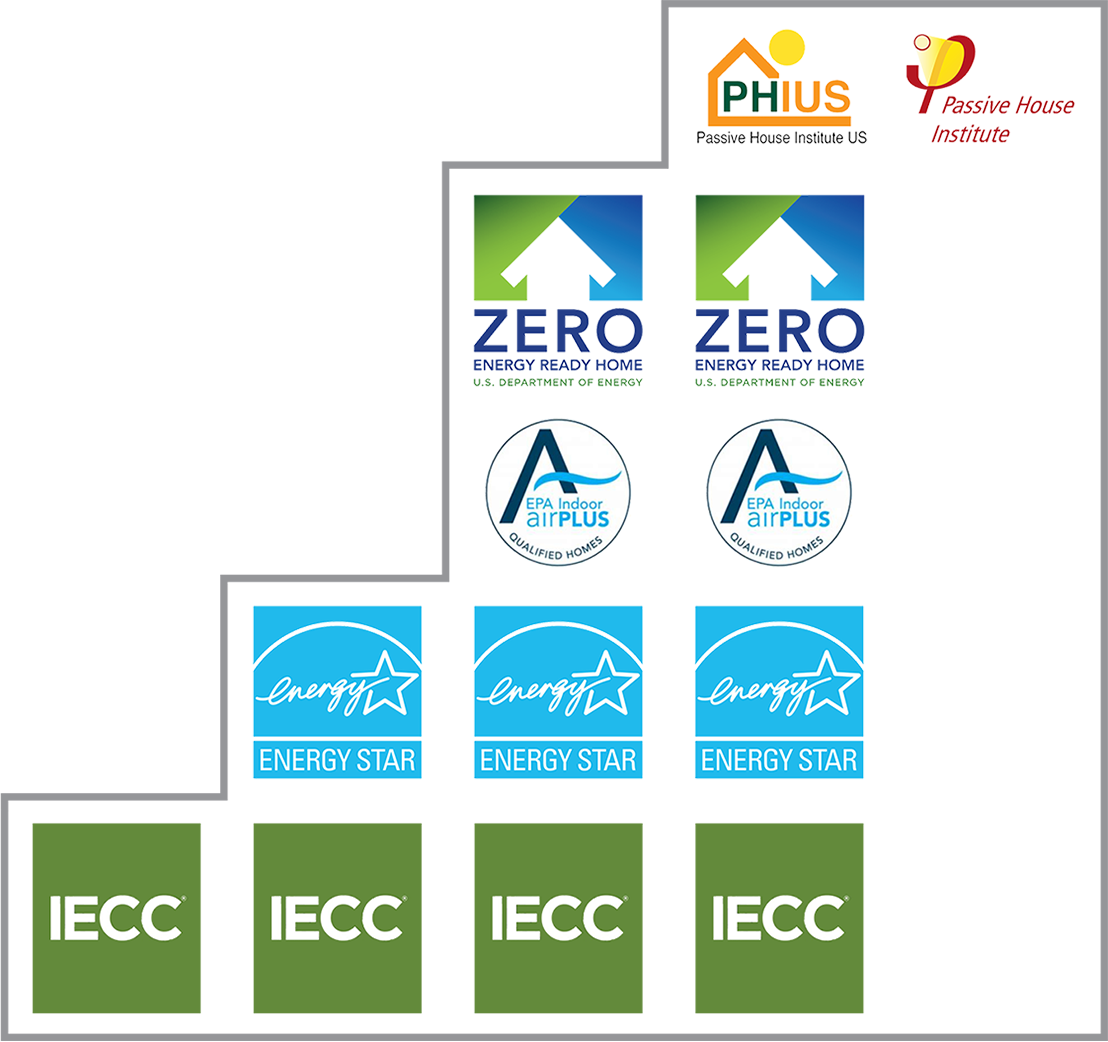Passive House at a Glance
- Passive house standards are the most rigorous of all energy efficient building certifications.
- Single-family, multifamily, and commercial buildings are eligible for certification.
- Passive House certification focuses on high levels of insulation, an airtight building envelope, high-performance windows and doors, and a balanced ventilation system.
Passive House Certifications
There are two Passive House certifications: Passive House Institute (PHI) and Passive House Institute US (PHIUS). Both certifications are of high caliber, and a project team can decide which standard works best for a project. The two standards have slightly different requirements and processes.

PHI Certification
PHI certification is the original Passive House certification, first developed in Europe in 1988. For retrofit projects, PHI is generally the preferred standard. While PHI does not require ENERGY STAR or Zero Energy Ready Home (ZERH), those certifications can often be easily achieved in the process of achieving PHI certification. Those certifications can be used to qualify for incentives, including local rebate programs and the Federal 45L Tax Credit, which can offset the costs for achieving PHI certification.
PHIUS Certification
In 2011, PHIUS was created as a separate certification from PHI. PHIUS certification is the most commonly pursued Passive House certification in America. PHIUS certification requires earning ENERGY STAR, Indoor airPLUS, and Zero Energy Ready Home (ZERH) certifications as prerequisites. Those certifications can be used to qualify for incentives, including local rebate programs and the Federal 45L Tax Credit, which can offset the costs for achieving PHIUS certification. If a building type is not eligible for these certifications, the project still must comply with the certification standards, without earning the certification.
Steps to Achieving Passive House Certification
- Perform energy modeling in Passive House software to determine materials and equipment needed to achieve the energy efficient target
- Include mandatory requirements for prerequisite certifications in design (PHIUS only)
- Conduct inspections and testing throughout the construction process
- Submit documentation for approval/certification

Benefits of Passive House Certification
Reduce energy usage and
utility bills
Improve indoor comfort and health for occupants
Minimize environmental impact and carbon footprint
Obtain zoning and
redevelopment approvals
Earn government and utility company incentives
Qualify for preferential loan financing for multifamily buildings
How ReVireo Can Help
ReVireo performs all required inspections and testing for Passive House certifications, including serving as the PHIUS Rater/Verifier. We also implement all aspects of prerequisite certifications for PHIUS and help owners to maximize incentives for both Passive House certifications.

